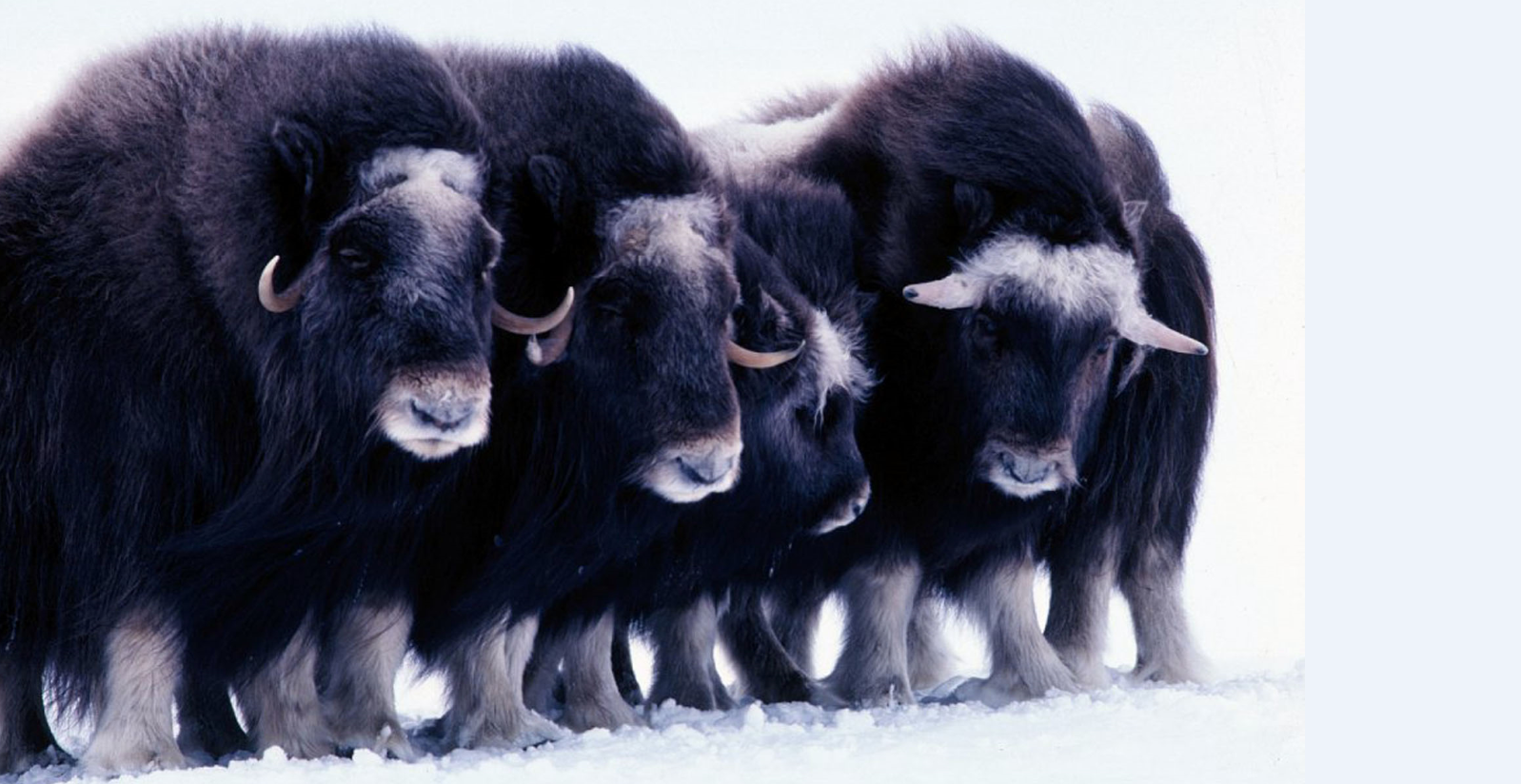Alaska gives go-ahead to hunt ice-stranded muskox

If an Alaska resident spots a musk ox floating on ice sea ice adjacent to a western Alaska game management unit, they can now legally hunt it without a permit because the land mammals don’t have much of a chance of surviving anyway.
On Wednesday, the Alaska Department of Fish and Game issued an emergency order allowing residents to harvest musk ox if the animal is stranded on free-flowing ice surrounded by salt water in Game Management Unit 18 — an area that stretches along the Bering Sea from Kotlik to Platinum and includesNunivak Island, which is home to more musk oxen than people.
Fish and Game Assistant Area Biologist Patrick Jones said the emergency order is a pre-emptive measure after years of wasted game. Last year, Nunivak residents requested an emergency order, but were unable to receive it. This year’s order honors that request.
Although it’s unclear to biologists why musk oxen move onto sea ice, Jones said, their “fate is sealed” once the hefty land mammal becomes stranded.
“They can swim short distances, but they’re pretty bad swimmers,” Jones said. “The other thing is, they can’t get back on (the ice). They can’t pull themselves onto an iceberg. Their feet are going to have to touch the ground to get out of the water. They’d need a ramp of sorts.”
But if musk oxen don’t drown, they’ll starve, Jones said.
‘A necessity for us’
In the past when area hunters spotted a musk ox on the ice, they had to notify Fish and Game and wait for the agency to issue a permit, something that can take three or four days, Jones said. By then, the hunting opportunity is typically lost.
“It doesn’t really work very well on a piece of ice that’s moving around,” Jones said. “Your chances of finding that piece of ice again are pretty slim.”
Abe David, 58, has been hunting musk ox on Nunivak Island since Fish and Game opened the hunt in the 1970s. Although he’s not a guide, he is a transporter, which means he brings hunters to their hunting destination.
Wednesday’s announcement excited David, who said musk ox meat is a crucial part of his diet. Allowing residents to hunt doomed mammals provides local hunters one more opportunity to harvest the mammals, he said, and bring home about 300 pounds of meat — as well asqiviut, also known as musk ox wool.
“The meat is an necessity for us,” David said. “And my wife, she makes yarn out of the wool and knits.”
Adult musk ox can produce up to about 7 pounds of qiviut a year, which is considered warmer and softer than wool. Hats, gloves and scarves made from qiviut sell for hundreds of dollars apiece.
But musk ox hunting opportunities in Unit 18 are rare despite a thriving population. There are only a limited number of lottery permits.
Estimated 740 animals
Musk ox were first introduced to Nunivak Island in the mid-1930s. The herd grew slowly and now fluctuates between 400 and 750 animals. In a June survey, Fish and Game estimated the population at 740 animals, or more than three times the human population of about 200 people.
“At present, populations can sustain the additional harvest of stranded musk oxen,” Fish and Game said.
But the regulation change won’t just affect Nunivak Island hunters. Any Alaska resident can take a stranded musk ox in the area.
About 20 miles from Nunivak Island across the Nelson Strait, smaller Nelson Island also has a thriving population. In 2004, Fish and Game estimated 318 animals on the island, but because of Nelson Island’s close proximity to the mainland, it’s hard for biologists to determine exactly how many reside there.
The coastal communities of Hooper Bay and Scammon Bay could see stranded musk oxen on sea ice, too, although Jones said it would be rare because there are few documented musk oxen in the area.
Show the photos
Nevertheless, Hooper Bay resident Jan Olsen was ecstatic when he heard the news.
“Wow, I can’t believe it,” Olsen said with a laugh. “They’ve come around here, I’ve seen them. Sometimes they seem to get scared or something and run onto the ice. If it happens again, that could be really good for us.”
Any hunter who takes a musk ox stranded on an ice floe will have to prove it to Fish and Game with photographs within 48 hours of the harvest.
Jones added that it is plausible for a musk ox to slip into the water after it’s shot, and be unsalvageable — but the hunter will still need to report the kill and show that a strong effort to retrieve the carcass was made. But because of the amount of gas typically found in a musk ox stomach, even animals that go into the water should still float, Jones added.
“Sometimes things happen,” Jones said. “Sometimes sheep or goats fall off a cliff, but if the hunter makes an effort to retrieve it, they won’t get in trouble. Situations happen. Human safety is above everything else.”
All other musk ox regulations in the region remain unchanged.
Related stories from around the North:
Canada: Nunavut Canada community revives eiderdown business, Eye on the Arctic
Finland: Rare white elk judged fair game in Finland, protected in Sweden, Yle News
Norway: Rapid growth in Svalbard walrus population, Barents Observer
Sweden: Appeal filed to prevent wolf hunt in northern Sweden, Radio Sweden
United States: Airlines’ new hunting trophy rules worry Alaskans, Alaska Dispatch News



